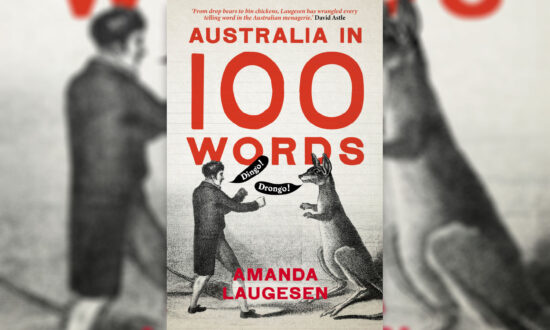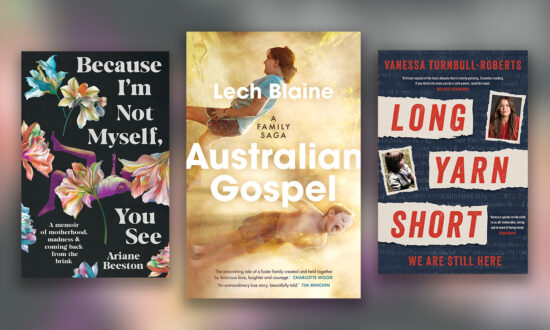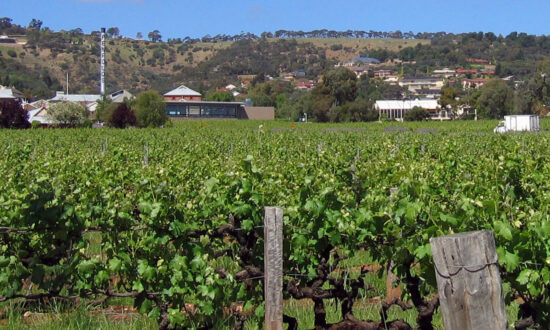In his “memoir of the craft”, On Writing, Stephen King lauds books as “a uniquely portable magic”. Among the world’s estimated 5 million podcasts, those devoted to books and reading are so plentiful that I’m tempted to call them the next best thing.
Literary podcasts offer comfort and convenience. Most are free. They’re available across multiple platforms. And while you could curl up in bed and simply listen (as I often do), they’re designed to be experienced while you’re doing something else – whether that’s enduring a long commute, sweating it out at the gym or tidying the house.
But the soaring popularity of podcasts like The Penguin Podcast and NPR’s Book of the Day reveals something more.
As writer Tom McCallister points out, while traditional reviews may be in decline, literary podcasts are not just “filling the void”. They’re “fracturing and reshaping” the “world of book discussion”.
Like community reviews and the more recent surge of #BookTok and #Bookstagram content on social media, literary podcasts feed the rich social networks that form around books. They transform what’s often a solitary activity – reading – into a widely (but intimately) shared experience.
Author interviews and various forms of criticism (from comprehensive reviews to casual banter) are mainstays of the format. But literary podcasts invite audiences to engage with books and writing in all kinds of ways.
Some are topical or focus on particular genres, as varied as literary classics and celebrity memoirs. Others are avenues for authors to read work aloud, or for industry professionals, like editors and agents, to share insider knowledge.
They connect readers to media outlets and literary journals. They help us discover new titles and authors in a saturated publishing market. And they can be a valuable platform for emerging authors, providing exposure and amplifying diverse voices.
Here’s a taste of what’s out there – including my favourites.
1. The Garret
If books are divisive, literary podcasts are, too. What’s enjoyable for one listener might not work for another.
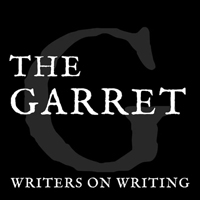 My own listening habits are driven largely by curiosity rather than loyalty: I listen to episodes haphazardly, when a particular guest, topic or title tempts me, dropping down the rabbit hole of whichever book I happen to be reading.
My own listening habits are driven largely by curiosity rather than loyalty: I listen to episodes haphazardly, when a particular guest, topic or title tempts me, dropping down the rabbit hole of whichever book I happen to be reading.
That said, I return most often to The Garret, an Australian podcast for “lovers of books and storytelling”. The Garret’s host – self-confessed bibliophile Astrid Edwards, who was among the judges of this year’s Stella Prize – releases new episodes almost every week. She interviews authors about craft, criticism and some of the stories behind the stories that have found their way to publication.
For something a little different, Melanie Ostell’s episode about what it takes to be a literary agent is one of my favourites.
————
2. Secrets from the Green Room
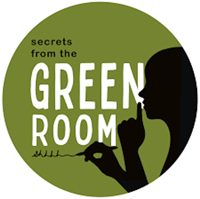 Australians are some of the world’s most enthusiastic podcast listeners, so it’s little surprise we produce some of the best bookish podcasts around.
Australians are some of the world’s most enthusiastic podcast listeners, so it’s little surprise we produce some of the best bookish podcasts around.
Secrets from the Green Room is dedicated to author stories you “won’t hear anywhere else”.
Irma Gold and Karen Viggers publish new episodes every few weeks. They invite guests to candidly share their own experiences navigating the world of publication, landing on topics as varied as ghostwriting, the “creep” of imposter syndrome, and the challenges of teaching writing at university.
————
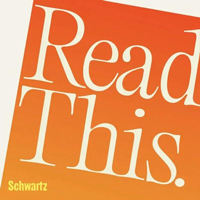 3. Read This
3. Read This
The Monthly’s weekly offering, Read This, features interviews with prominent writers from Australia and around the world.
Its first episode took host Michael Williams (editor of The Monthly) to Helen Garner’s house for “conversation and cake”. Later guests have included Rebecca Makkai and George Saunders.
————
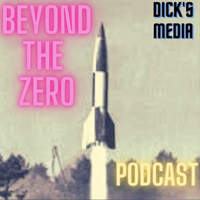 4. Beyond the Zero
4. Beyond the Zero
Beyond the Zero also spotlights new titles through extended conversations with both local and international authors.
Each episode is a deep dive into the books and writers that have influenced the guest, so far ranging from Booker winner Paul Lynch to Australian literary authors like Emmett Stinson on Gerald Murnane.
————
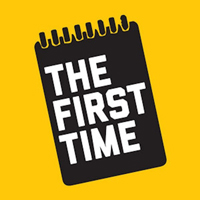 5. The First Time
5. The First Time
On The First Time podcast, novelists Katherine Colette and Kate Mildenhall take readers behind the scenes, into the “logistics and feels of writing and publishing a book”.
They regularly feature debut authors, as part of their (paid) Featured Book series. There’s also a Masters series, with veteran writers like Richard Flanagan, and episodes that deal with “awkward” conversations, including how book endorsements work.
————
6 & 7. ABC RN: The Bookshelf and The Book Show
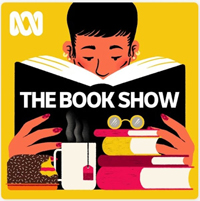 ABC Radio National has two main literary podcasts. On The Bookshelf, Kate Evans and Cassie McCullagh review newly published fiction, alongside guest reviewers, in hour-long episodes broadcast every Friday.
ABC Radio National has two main literary podcasts. On The Bookshelf, Kate Evans and Cassie McCullagh review newly published fiction, alongside guest reviewers, in hour-long episodes broadcast every Friday.
The Book Show, hosted by Claire Nichols, also curates new fiction. Each episode brings together two or more guests whose work shares compelling themes or intersects in otherwise surprising ways.
This year, The Book Show also ran a fascinating four-part series on literary fakes and frauds, starting with the John Hughes scandal.
————
8 & 9. The New Yorker: Fiction and Poetry podcasts
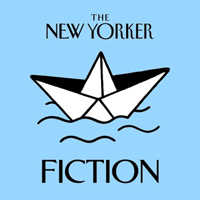 The New Yorker’s Fiction podcast has stood the test of time. Each month, the magazine’s fiction editor, Deborah Treisman, invites some of the world’s most celebrated authors to read aloud from another author’s work.
The New Yorker’s Fiction podcast has stood the test of time. Each month, the magazine’s fiction editor, Deborah Treisman, invites some of the world’s most celebrated authors to read aloud from another author’s work.
In November, for example, Margaret Atwood read and discussed Mavis Gallant’s story Varieties of Exile, live at Toronto’s Hot Docs podcast festival. (In 2019, Atwood chose Alice Munro.)
The archives go all the way back to 2007. (And if you’re a fan of the read-aloud format, you might also enjoy The New Yorker’s Poetry podcast.)
————
10. Backlisted
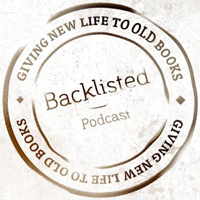 Presented by John Mitchinson and Andy Miller, Backlisted solicits a writerly guest to choose a book they love and wax lyrical about why it deserves a wider audience (like Jennifer Egan and Nell Stevens on Elizabeth Gaskell’s North and South).
Presented by John Mitchinson and Andy Miller, Backlisted solicits a writerly guest to choose a book they love and wax lyrical about why it deserves a wider audience (like Jennifer Egan and Nell Stevens on Elizabeth Gaskell’s North and South).
Recently celebrating its 200th episode, Backlisted prides itself on “giving new life to old books” – a refreshing alternative to literary podcasts that focus almost exclusively on recent releases.
————
11. Overdue
Overdue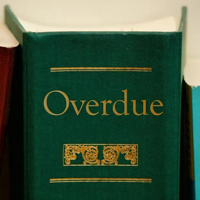 , a podcast “about the books you’ve been meaning to read”, is also sure to add some dog-eared classics to your to-be-read pile. It’s not all classics, though – the hosts’ “overdue” reading list includes Jenny Offill’s 2014 novel, The Department of Speculation, and Gabrielle Zevin’s 2022 gaming novel, Tomorrow, and Tomorrow and Tomorrow, as well as stone-cold classics like Madame Bovary.
, a podcast “about the books you’ve been meaning to read”, is also sure to add some dog-eared classics to your to-be-read pile. It’s not all classics, though – the hosts’ “overdue” reading list includes Jenny Offill’s 2014 novel, The Department of Speculation, and Gabrielle Zevin’s 2022 gaming novel, Tomorrow, and Tomorrow and Tomorrow, as well as stone-cold classics like Madame Bovary.
Try the episode about Camus’s The Stranger if – like me – you only pretended to read it in high school.
————
12. Book Riot
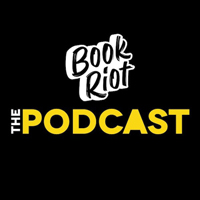 For listeners interested in industry trends, the Book Riot podcast publishes weekly episodes that revolve loosely around “what’s new, cool, and worth talking about in the world of books and reading”.
For listeners interested in industry trends, the Book Riot podcast publishes weekly episodes that revolve loosely around “what’s new, cool, and worth talking about in the world of books and reading”.
Jeff and Rebecca, who also edit the Book Riot website, serve up a gratifying mix of book-related commentary and news, including reading recommendations, awards chatter and emerging or evolving issues (think book bans and generative AI).
————
13. If Books Could Kill
If Books Could Kill offers a diverting but incisive take on “the airport bestsellers that captured our hearts and ruined our minds”. As a scholar of self-help books, I was primed to regard this podcast with deep suspicion, but the episodes are well researched and thoroughly entertaining.
offers a diverting but incisive take on “the airport bestsellers that captured our hearts and ruined our minds”. As a scholar of self-help books, I was primed to regard this podcast with deep suspicion, but the episodes are well researched and thoroughly entertaining.
Start with The Rules and The 5 Love Languages to laugh out loud as you learn about some of the most pervasive but questionable relationship advice to surface in the 20th century.
————
14. & 15. Reading Glasses and Marlon and Jake Read Dead People
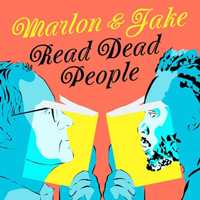 Finally, I’d like to mention two new-to-me podcasts. Reading Glasses is a podcast about “reading better” that includes an episode on how to get borrowed books back.
Finally, I’d like to mention two new-to-me podcasts. Reading Glasses is a podcast about “reading better” that includes an episode on how to get borrowed books back.
And in Marlon and Jake Read Dead People, Man Booker Prize winning author Marlon James and his editor, Jake Morrissey, share big opinions on all things books, authors and writing – like our evergreen quandaries around reading good books by terrible people or judging a book by its cover.![]()
Amber Gwynne is a sessional lecturer in writing at the The University of Queensland. This article is republished from The Conversation under a Creative Commons license. Read the original article.
![]()
Support local arts journalism
Your support will help us continue the important work of InReview in publishing free professional journalism that celebrates, interrogates and amplifies arts and culture in South Australia.
Donate Here

